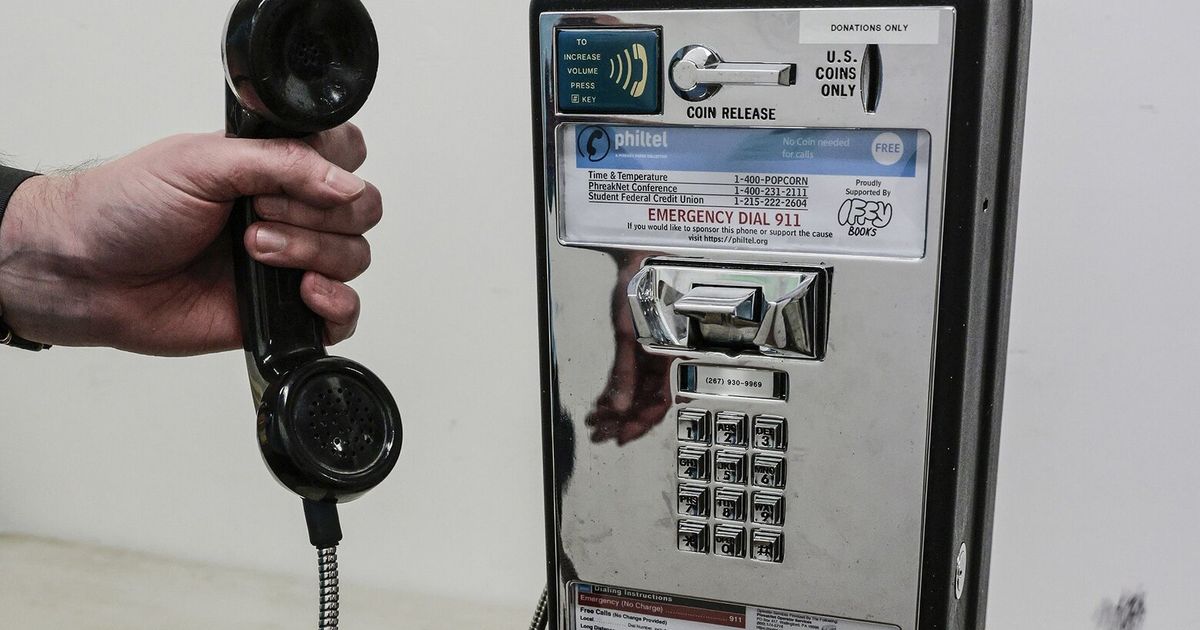
Part community service, part nostalgia and part art project.
That’s how Mark Dank describes PhilTel, a project he is organizing to bring old-fashioned pay phones to Philadelphia neighborhoods — with a twist being that they will be free to use for calls in North America thanks to internet calling.
“Some of the people in the community around this project, they really like the idea of an old pay phone,” Dank said. “They like the aesthetics of it. When it comes down to it, a pay phone is a rugged-ized, hardened device. It’s a piece of urban furniture that you can put on the street.”
In Philadelphia and across America, rising ownership of cellphones — now 97% of the population, according to the Pew Research Center — has led to the disappearance of most pay phones. New York City held a news conference in May when it removed the last street pay phone from Manhattan.
Dank, in an interview, estimated the number of working pay phones in Philadelphia today at 50. In the 1990s there were 4,800, according to a compilation by The Payphone Project.
Fascination with networks and infrastructure
For Dank, 31, who lives in Springfield, Pennsylvania, and works as a software engineer, the fascination with pay phones is part of a broader interest in hidden urban networks and infrastructure for electric, steam, water or communications.
“I like complex systems, seeing how everything works together,” Dank said during a presentation in September at Iffy Books, on the third floor of a building where he plans to install the first PhilTel phone on Dec. 17.
Dank is also involved in Philly 2600, a computer hacking meetup, and is editor of Node Zine, which covers what he called “decentralized networking projects.” Dank also has a website call Networks of Philly, which has sections on manhole covers, street markings, antennas, kiosks and cameras.
The inspiration for PhilTel came from a project in Portland, where an engineer named Karl Anderson installed the first Futel phone in 2014, according to The Oregonian. Futel now has eight phones in that city, and one each in four other cities, according to Futel’s website.
Anderson told NPR in 2019 that people had made 12,000 calls the year before on Futel phones. Futel describes its mission as preserving “public telephone hardware as a means of providing access to the agora for everybody,” using a Greek term for central public space.
Futel did not respond to an email requesting more recent data.
Testing the concept
Dank said the first PhilTel telephone, at Iffy Books, is a chance to show that PhilTel can successfully install a phone and keep the hardware that connects the phone to the internet working.
It’s also “a test to see how people react to it, how people use it, what kind of usage it gets,” Dank said.
Assuming a good deal on an old pay phone (Dank bought the first one for $20 years ago), the upfront cost of installing a PhilTel phone that has been retrofitted to connect to the internet is a minimum of $300, Dank said.
“If you want it outdoors in a nice enclosure, it could be maybe closer to a $1,000,” said Dank, who hopes to collect donations, including old phones, phone parts and telephone cables, to expand PhilTel. The ongoing operating costs are low, he said, maybe $3 to $4 a month for a server. The calls themselves can cost as little as a tenth of a cent per minute, Dank said.
Dank’s goal is to install five PhilTel phones in different neighborhoods throughout Philadelphia, and then build from there.
“I want people to always be in proximity to a phone,” he said.


More Stories
Save Earth Mission’s Takeoff Event Countdown Starts: Get Ready to Witness History
The Save Earth Mission: A Global Movement Towards a Sustainable Future
Leading Utility Token YES WORLD adds gaming project to Utility ecosystem, supports third party game publishers on its platform